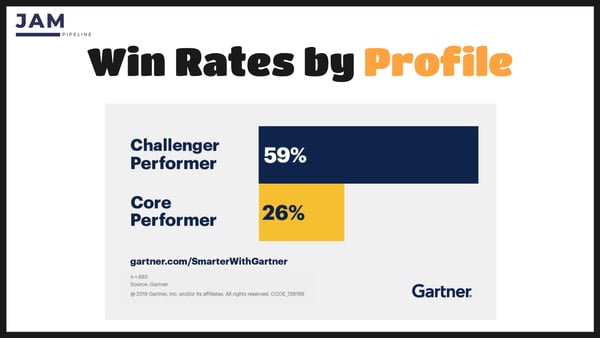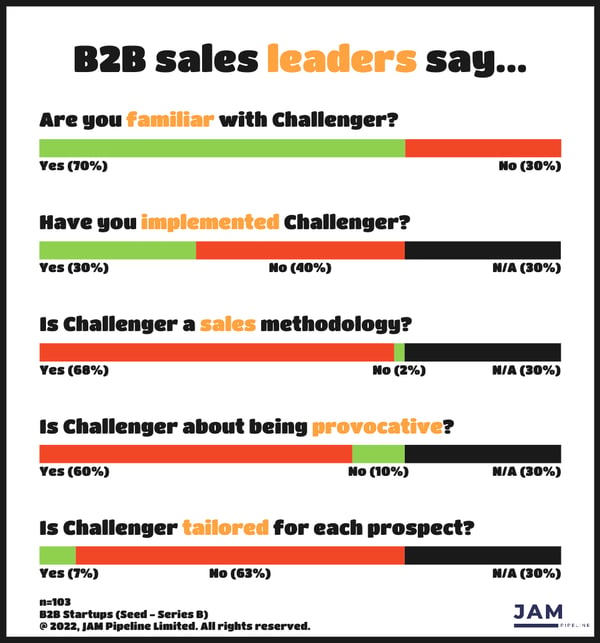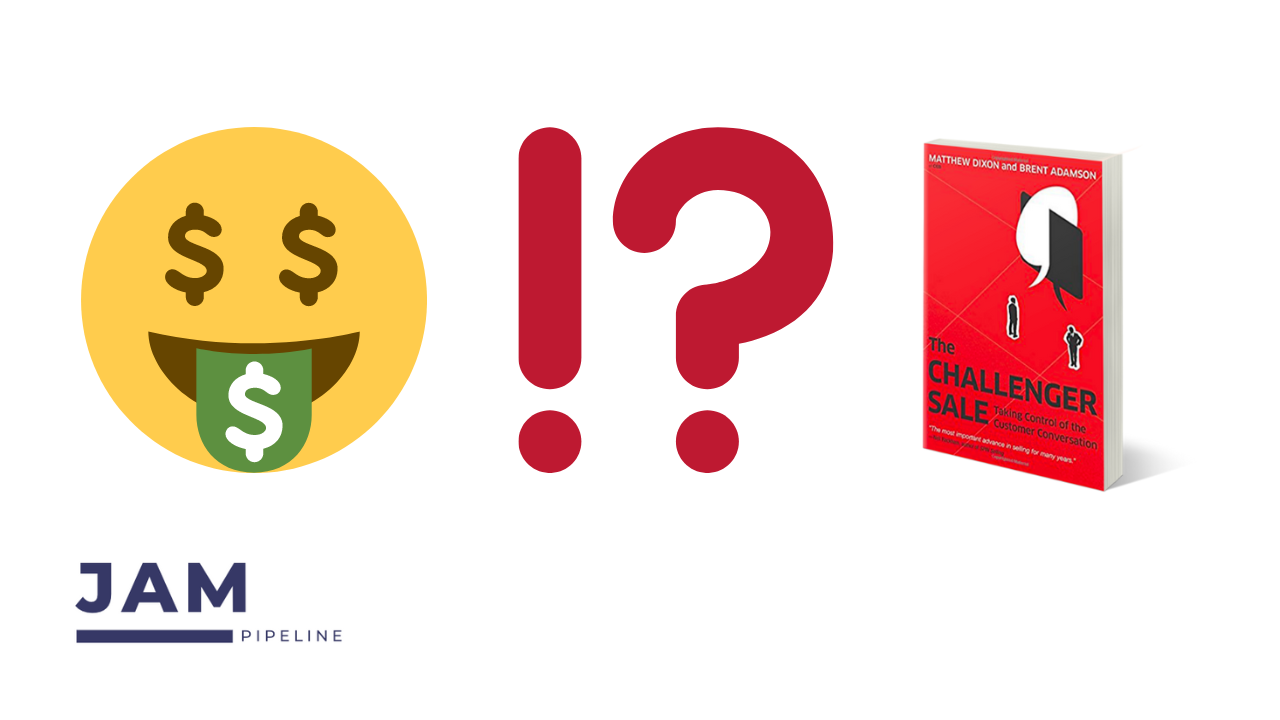The Challenger Sale was released in 2011. And shocked the sales world.
It presented a new way of selling. Supported by data from the best performing sales reps.

Fast forward 12 years and it is the leading approach to selling.
B2B Sales experts consider it the only acceptable approach in the current climate.
However, most sales leaders don't get it.
In 2022, we conducted a comprehensive analysis of 103 funded B2B startups.
As part of this analysis, we surveyed leaders (CRO, VP Sales, Head of Sales).
We were surprised to find out that while sales leaders know about Challenger.
They don't know Challenger.

They have fundamental misconceptions about this superior methodology.
So let us take a look at each of these.
And hear what Matt Dixon and Brent Adamson have to say about each one.
Since they are the architects of Challenger.
Myth 1: Challenger is a sales methodology.
68% of B2B sales leaders think of Challenger as just another sales methodology.
Which is understandable.
The book was titled "The Challenger Sale".
And it is often referred to as a sales methodology online.
However, Matt and Brent never considered it a sales methodology.
Referring to it as an organization-wide, commercial strategy instead.
Myth 2: Challenger is about being provocative.
60% of B2B sales leaders think the key to Challenger is being provocative.
They think it is about making prospects uncomfortable.
Which they say is a rude way to deal with the buyer.
However, Challenger is a lot more complex than that.
Yes, it requires challenging the buyer's way of thinking.
But it is fundamentally about building a high-value relationship with them.
It is not about being a jerk.
Myth 3: Challenger is a one-size-fits-all approach.
Finally, 63% of B2B sales leaders don't think that the challenge is tailored for each prospect.
This makes sense, since so many think of Challenger as simply being provocative.
They think that it is about having a blanket statement that shocks prospects.
Only 7 of the 103 surveyed sales leaders recognised that Challenger is always tailored.
It requires understanding how each buyer views their own business.
And adjusting the challenge accordingly.
Challenging every buyer requires precision.
Challenger requires deep understanding of your market.
It also requires getting into the head of every buyer.
To precisely challenge the way they think about the business.
And support your argument with undeniable evidence.
Which is why only 2% of startups successfully implement Challenger.




